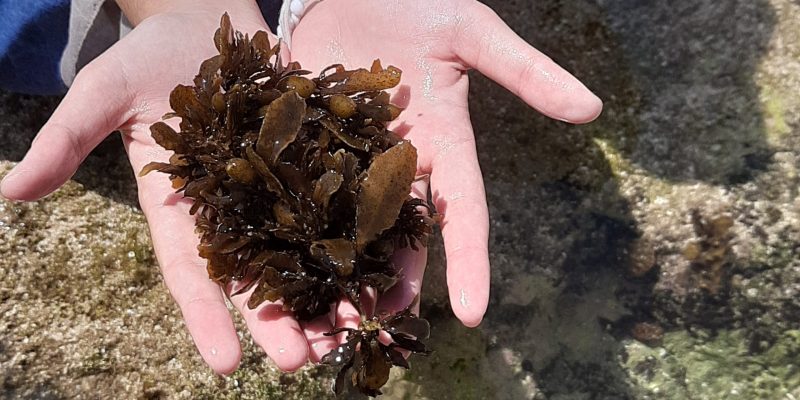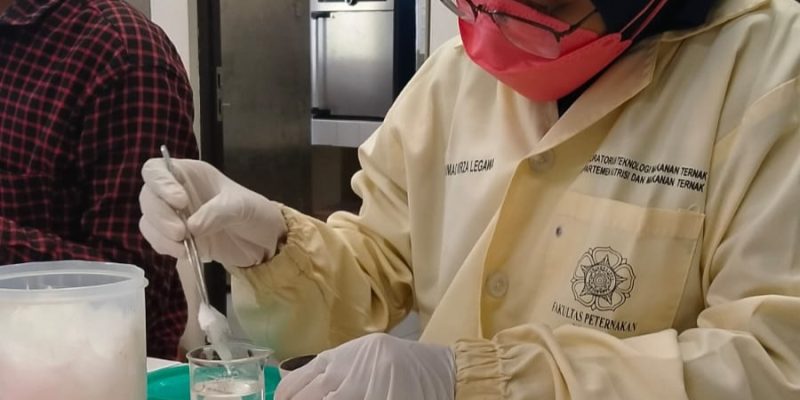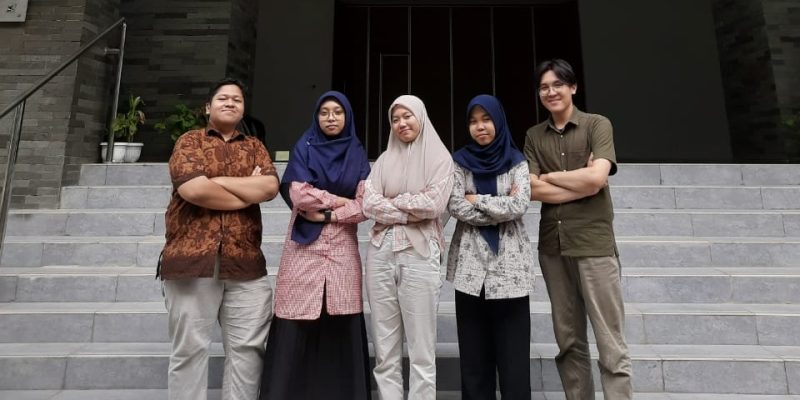Efforts to mitigate climate change within the livestock sector have received little attention in Indonesia. Despite its relatively small contribution compared to the industrial and energy sectors, the livestock sector’s role in reducing greenhouse gas emissions can help lower global temperatures and prevent extreme global warming. According to BMKG data (2022), the average concentration of methane emissions worldwide has been steadily increasing since January 1980, reaching 1,909.3 ppb by December 2021, up from 1,620 ppb. The livestock sector ranks as the third-largest contributor of methane, accounting for 20 to 25% of total global methane emissions. Most of the methane emissions from the livestock sector are generated by ruminant animals through the complex fermentation process in their stomachs (rumen), which is later released through feces and belching.
This issue caught the attention of Ahmad Rizal Riswanda Danuartha (Livestock Science and Industry, class of 2022), Akmal Bunyamin (Biology, class of 2021), Anggi Abdillah Surya Amni (Chemistry, class of 2022), Yessa Juliaputri (Aquatic Resource Management, class of 2021), and Siti Komariyah (Livestock Science and Industry, class of 2022), who formed the PKM-RE Team with mentorship from Moh. Sofiul Anam, S.Pt. M.Sc. namely PELLETAN funded by the Ministry of Education, Culture, Research, and Technology. Their goal was to utilize seaweed (Macroalgae Sargassum sp. and Gracilaria sp.) from Gunung Kidul Beach, Yogyakarta, as pellets for ruminant livestock feed supplements. These supplements were expected to modify the rumen environment, thereby reducing methane production. Macroalgae, commonly known as seaweed, holds the potential to be a rich source of protein, carbohydrates, fats, vitamins, minerals, amino acids, and other bioactive compounds. “We chose macroalgae as the primary ingredient for ruminant livestock feed supplements because of the presence of tannins and saponins, which have the ability to reduce methane production. While seaweed has been widely used in food, feed, and pharmacology, utilizing it as a feed additive in livestock farming presented a challenge for us in terms of exploring and identifying crucial compounds that could be beneficial, especially in creating a ready-to-use, high-quality, and affordable product for farmers,” explained Ahmad Rizal. Yessa added that research on the potential of seaweed for methane mitigation has been conducted, but there hasn’t been an innovation in the form of ready-to-use pellet products for farmers. “We turned our research into pellets to make it easier for farmers to apply, making it more efficient. Additionally, with the pellet form, livestock feed supplements have a longer shelf life,” added Siti.
Gunungkidul Regency boasts extensive coastlines, making it a potential area for seaweed cultivation, one of which is found at Trenggole Beach. “Initially, we collected seaweed samples at Trenggole Beach in Gunung Kidul, then processed the seaweed into pellets. Afterward, we conducted in vitro tests at the TMT Lab using rumen fluid taken from Bali cattle. We then collected the gas from the in vitro test to analyze the production of carbon dioxide and methane gas. The results of the gas test were positive, indicating that this feed supplement is capable of reducing methane emissions resulting from rumen fermentation,” explained Akmal.
By integrating various disciplines of scientific knowledge and skills acquired during their studies, they successfully created pellet-shaped livestock feed supplements from macroalgae, which will be tested for effectiveness in vitro at the Animal Feed Technology Laboratory of the Faculty of Animal Sciences (TMT) and the Organic Chemistry Laboratory at UGM.Based on gas tests conducted at the Agricultural Environmental Instrument Standard Testing Center in Pati on the seaweed supplement pellets developed by Rizal and his team, the supplement successfully reduced methane production by 21.19% for 3% supplementation and 21.38% for 6% supplementation. Additionally, based on data analysis from their in vitro test, the seaweed supplement pellets increased the digestibility of dry feed by 7.11% to 7.29%. This is undoubtedly a positive development for farmers, as previous research indicated that 3 to 12% of digestible energy from feed is not maximally absorbed due to being lost in methane production.
“We hope that with this innovation, we can reduce methane emissions generated by the livestock sector, as this sector has often been unfairly blamed for recent climate issues,” concluded Anggi. This research is not only a commendable achievement but also has the potential to significantly help reduce global methane production. Consequently, this could further drive carbon emission reduction goals, ultimately addressing climate change more effectively. [Author: Akmal Bunyamin]





